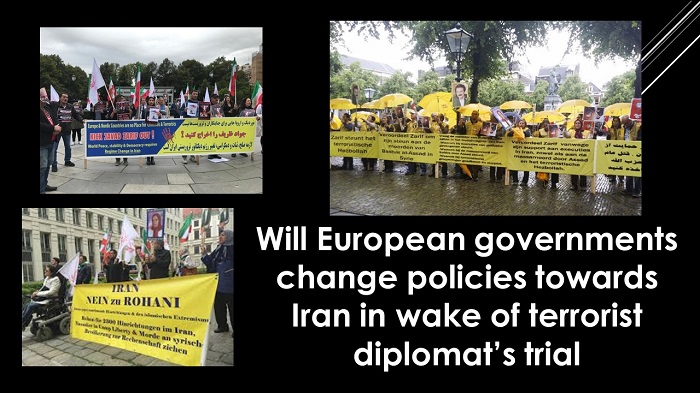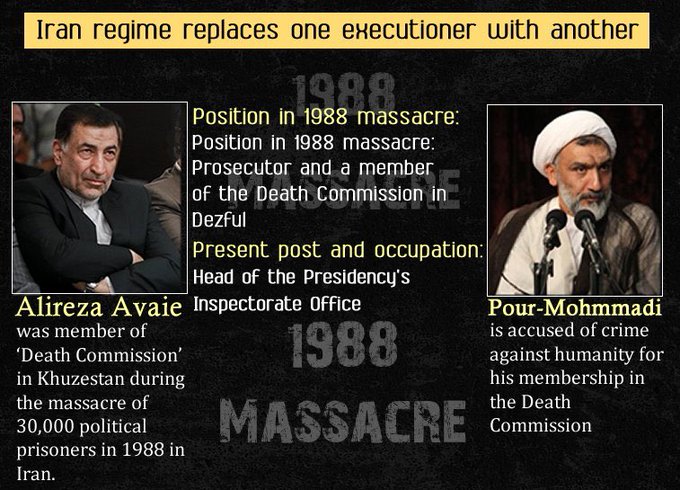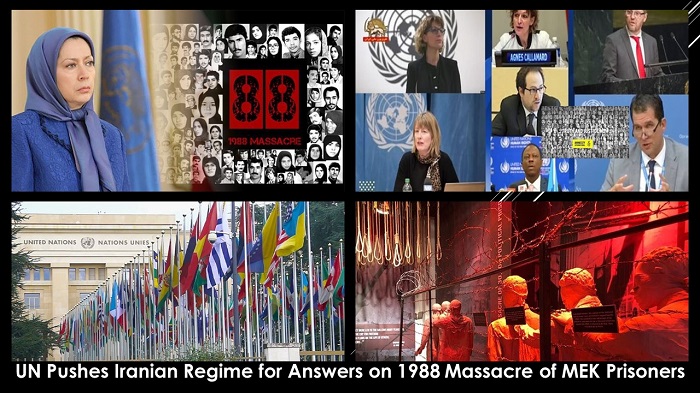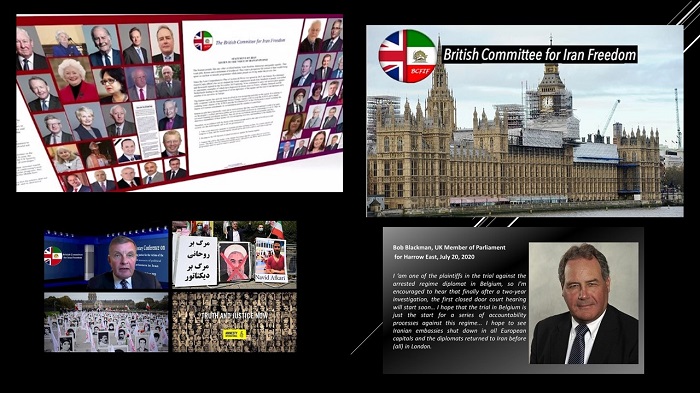
The People’s Mojahedin Organization of Iran (PMOI / MEK Iran) and the National Council of Resistance of Iran (NCRI), reported that the response to the latest execution in Iran of a French resident, Ruhollah Zam, by several European nations, including France, Germany, Italy, and Austria, withdrew from the Europe-Iran Business Forum. The European Union has shown its disapproval of the use of the death penalty, too. This has shown a turnaround towards Iran as previously many actions including human rights abuses by the Iranian regime have had no response from Europe. This sort of reaction has over the last few decades given the regime impunity so they have just continued with punishing and imprisoning dissidents.
Germany and other European Union members cancelled their participation in in the Europe-Iran Business Forum citing "current developments in Iran."
This is a reference to the recent execution of #RuhollahZam by #Iran's regime.https://t.co/ysUhqJlnyU
— Heshmat Alavi (@HeshmatAlavi) December 13, 2020
The fate of Ruhollah Zam is the tip of the iceberg when compared with other crimes against humanity that have taken place without question since the Islamist dictatorship took over from the Shah in 1979.
Now things are starting to look up when it comes to making the regime accountable for its atrocities against its own people, as a number of United Nations human rights experts recently published an open letter directed at the Iranian government asking for key information about the appalling executions of political prisoners in 1988 during the summer and the fact that they were buried in secret burial sites. This letter was sent to the regime but because there had been no response the contents of it have now been made public.
Without a doubt, the reason that the regime hadn’t responded is that it didn’t believe the United Nations would do anything and they didn’t think that they needed to defend themselves for such actions even though reportedly 30, 000 lives were lost. Many of the victims were either members or supporters of the People’s Mojahedin Organization of Iran (PMOI / MEK Iran).
Killing 30,000 political prisoners in 1988 resulted in no action from the international community. Nor did the killing of 1,500 protesters last year. So what next? Hopefully, the international community will put a stop to this before we find out what atrocity of #Iran regime.#MEK pic.twitter.com/sMXDoL5SDJ
— MEK Iran (Mujahedin-e Khalq) (@MEK_Iran) December 12, 2020
Details of that massacre were confirmed in 2016 when an audio recording was leaked where Ruhollah Khomeini’s expected successor stated that it was the “worst crime of the Islamic Republic” and that the “death commissions” killed anyone they choose even young people and pregnant women.
Other quotes from perpetrators were that they were “proud” to have carried out “God’s command” of death for members of the People’s Mojahedin Organization of Iran (PMOI / MEK Iran) who were the key targets of the massacre. Mostafa Pourmohammadi served as Minister of Justice at the time while the present occupant as head of the judiciary is Ebrahim Raisi who was heavily involved in the death commissions. Because the regime had never been held accountable for the massacre, it didn’t hesitate to award Raisi his present position.

In December 1988, the UN General Assembly passed a resolution showing concern about a renewed wave of executions between July and September 1988. It noted that the prisoners were targeted for execution because of their political persuasion.
The recent letter from the UN stated that because no action was taken back in 1988 it “had a devastating impact on the survivors and families as well as on the general situation of human rights in Iran and emboldened Iran to continue to conceal the fate of the victims and to maintain a strategy of deflection and denial that continue to date.”

The execution of Ruhollah Zam has been made visible to the world community and the expected motive is to silence political protests in the country. Iran’s French and German ambassadors have been questioned by the regime about the UN response to this most recent execution. The regime told these diplomats to mind their own business even though in this case Zam had been accepted as a refugee in France but was quickly kidnapped by the Islamic Revolutionary Guard Corps and brought back to Iran.
Despite the criticism from Iran regarding outside interference in Iran’s domestic affairs it failed to acknowledge that only a couple of weeks ago before Zam’s execution, an Iranian diplomat-terrorist and three co-conspirators went on trial in Belgium for attempting to bomb an Iranian Resistance’s, (NCRI) and (PMOI / MEK Iran) gathering in the heart of Europe during the summer of 2018.
https://t.co/fDw1tKXyUQ: On June 30, 2018, a sophisticated bomb should have exploded during a meeting of the #NCRI a coalition of movements opposed to the authorities in Tehran. The attack plan had been foiled by extremists. #MEK #Iran https://t.co/Vihck8lA6j
— MEK Iran (Mujahedin-e Khalq) (@MEK_Iran) October 10, 2020
The Iranian resistance, (NCRI) and (PMOI / MEK Iran) has for some time now demanded that Western policies should be directed at holding the regime accountable for crimes like mass executions or bomb plots that are directed at Iran’s dissident movement.

and People’s Mojahedin Organization of Iran – MEK IRAN – YouTube







